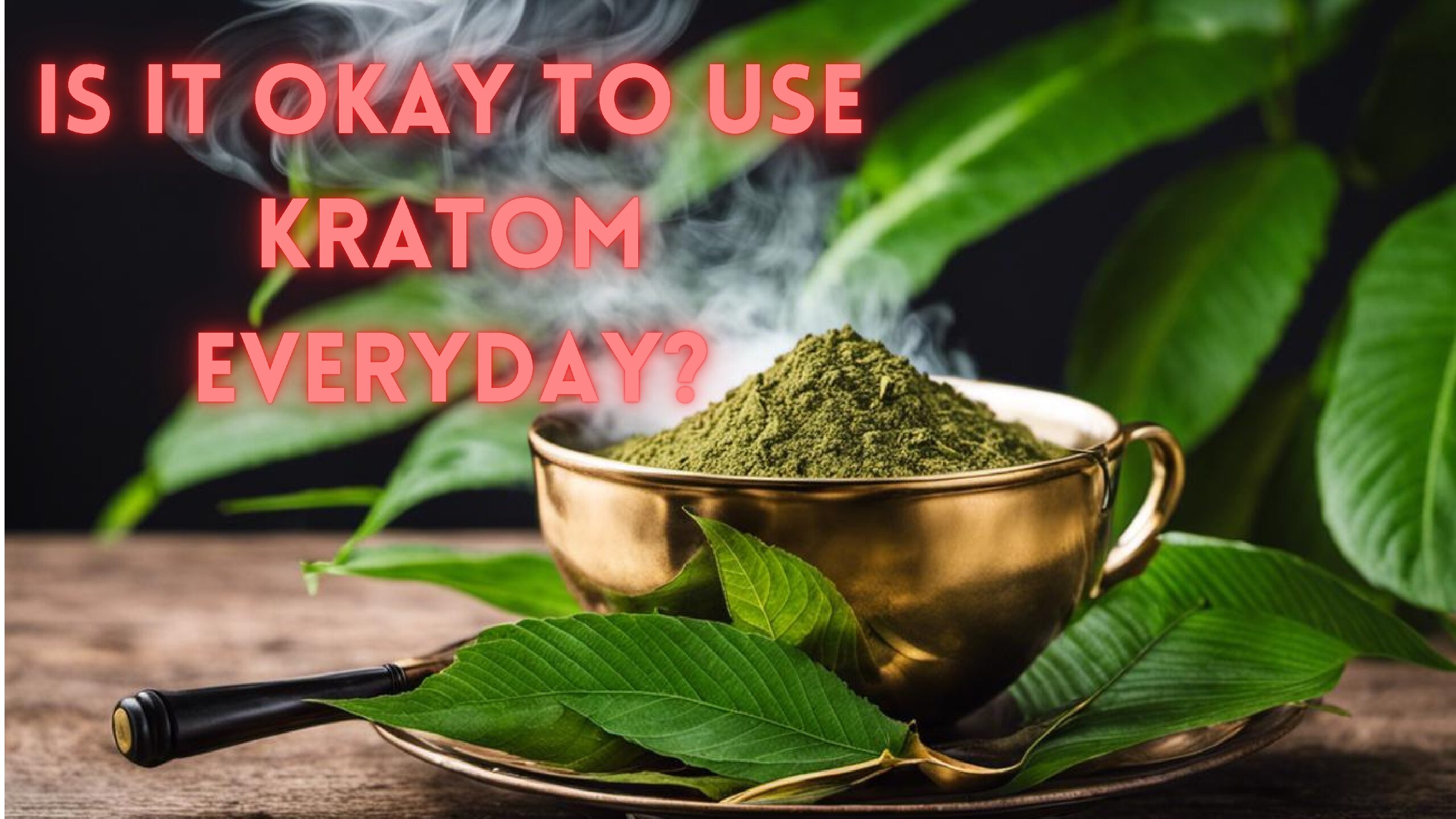IS IT OKAY TO USE KRATOM EVERYDAY
The use of Kratom, a substance native to Southeast Asia, has gained increasing popularity both in the field of traditional medicine and recreational use. Known for its varying benefits depending on strain, it has been regarded as a functional remedy for pain management, mood enhancement, anxiety, and energy boosting. However, like any substance, Kratom also comes with questions regarding its overall safety, side-effects, and possible risks.
The topic of daily kratom use and its impact on health particularly begs careful attention. This post explores what kratom is, the benefits offered, potential downsides, and whether its daily use poses more harm than good.
WHAT IS KRATOM
Kratom, scientifically known as Mitragyna Speciosa, is a tropical tree native to Southeast Asia, primarily in regions like Thailand, Malaysia, and Indonesia. This evergreen tree belongs to the coffee family and is well-known for its psychotropic effects.
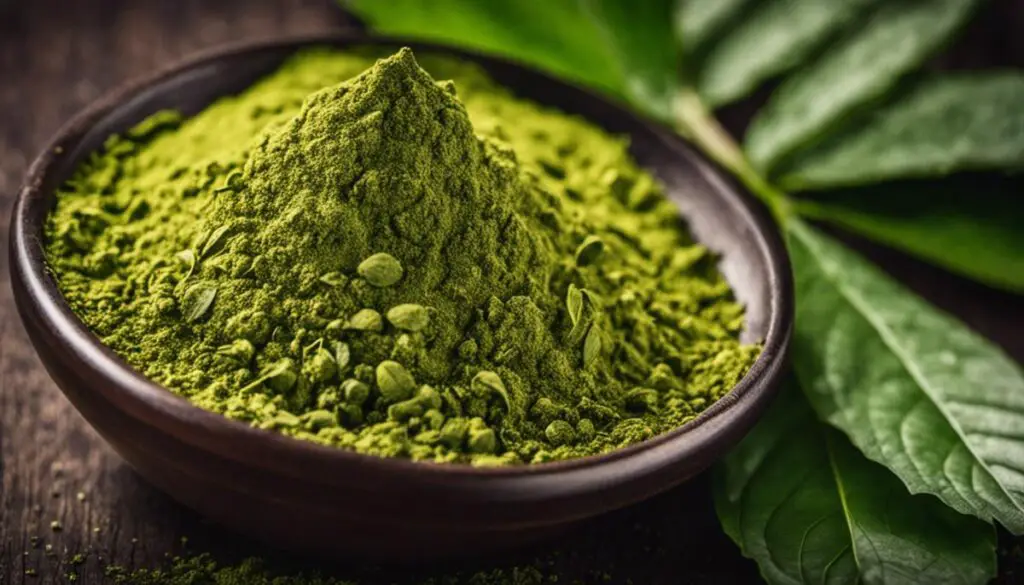
The leaves have been used in traditional medicine since the 19th century, with noticeable stimulant and sedative properties. The primary active ingredients in kratom are alkaloids, particularly mitragynine and 7-hydroxymitragynine, which interact with opioid receptors in the brain, resulting in sedation, pleasure, and decreased pain.
WHAT ARE THE DIFFERENT STRAINS OF KRATOM
The color of the vein and the region where the tree grows usually determines the strain of kratom. The three primary strains are White Vein, Red Vein, and Green Vein Kratom.
- Red Vein kratom, reportedly the most potent of all, is known for its calming, sedative effect and substantial pain reduction.
- White Vein kratom, is purported to have a stimulating effect and can help increase concentration and stamina.
- Green Vein kratom, balances both ends of the spectrum and is used for its mild energy boosting effects.
IS IT OKAY TO USE KRATOM EVERYDAY
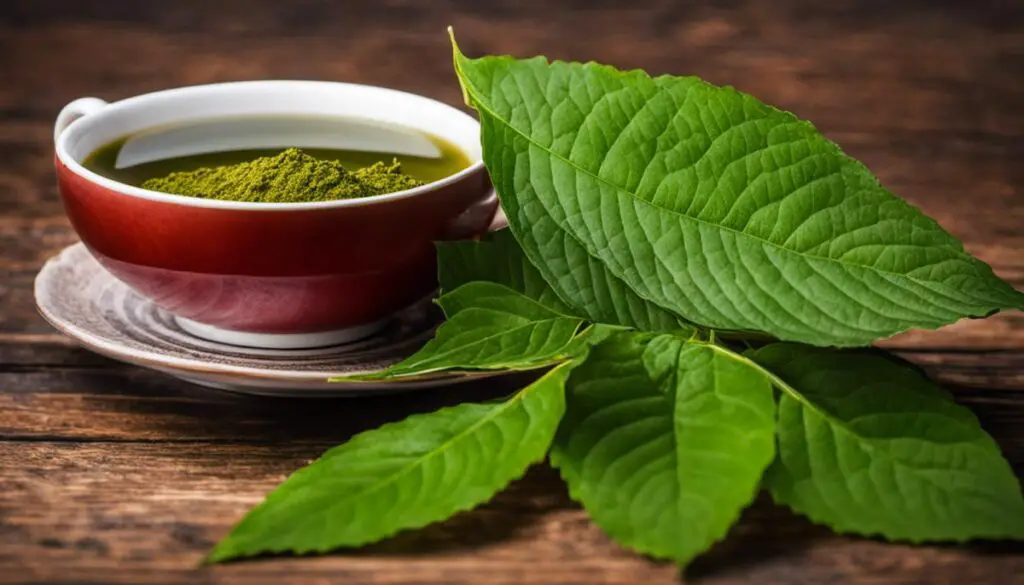
Opinions among experts and users vary, as there are many individuals who have used kratom daily for years, reporting minimal side effects and many benefits. They use it as a treatment for chronic pain, anxiety, and depression, as a mood booster, and increasingly, to help with opioid withdrawal. However, like any substance, kratom has its potential risks and side effects.
Daily and long term use of kratom can lead to physical dependency and withdrawal symptoms when trying to stop usage. Users have reported nausea, itching, sweating, dry mouth, constipation, increased urination, loss of appetite, and in extreme cases, hallucinations and seizures. Kratom withdrawal symptoms may also occur, such as muscle aches, insomnia, irritability, and hostility.
Regardless, research on Kratom is still relatively limited, and caution should be exercised due to the lack of understanding about long-term consequences of its use.
You may also want to check out this post… AM I ADDICTED TO KRATOM?
One study found that heavy and/or long-term kratom use might lead to weight loss, insomnia, and skin darkening. In some rare cases, it can cause liver damage. The U.S. Food and Drug Administration (FDA) has not approved kratom for medicinal use and advises against its consumption.
Factors to Consider
If you’re considering kratom for daily use, several factors need to be taken into account. First, always consult with a medical professional. The dose, strain, the individual’s health condition, and the quality of the product will all play a part in the outcome. Furthermore, note that since kratom is not regulated by the FDA, the quality, purity, and strength of products can vary significantly.
CLICK HERE FOR GREAT QUALITY KRATOM FROM A REPUTABLE AND TRANSPARENT VENDOR
When considering daily use of kratom, it is vital to approach it responsibly, always being mindful of the impact it has on your health. If you do incorporate it into your everyday routine, ensure that you engage in ongoing research and closely observe its effects on your body.
It’s worth noting the importance of taking regular breaks from kratom use. By doing this, you can lessen the risk of acquiring a tolerance to the plant and prevent the development of addiction.
WHAT ARE THE BENEFITS OF KRATOM USE
Kratom, a plant inherent to Southeast Asia, and known scientifically as Mitragyna speciosa, has gained a lot of attention due to its potential benefits. This tropical evergreen tree, a member of the coffee family, has been a staple of traditional medicine for centuries due to its analgesic properties.
Its most notable effect is offering pain relief for a variety of conditions, both chronic and acute. It is believed that kratom interacts with the pain receptors in your brain, thereby reducing or potentially eliminating discomfort.
Beyond pain relief, kratom can also be utilized as a method to manage anxiety and stress. Various users have attested to a more enhanced mood, a decrease in anxiety, and better handling of stress after taking kratom. The alkaloids present in kratom are thought to affect the brain’s opioid receptors, which regulate mood, thus leading to this anxiolytic effect.
Users have also reported improved focus and an increase in energy levels as benefits from using kratom. It is posited that the metabolic impacts of the plant can enhance users’ energy levels. Furthermore, the stimulus of acetylcholine release can lead to improved focus and memory functions.
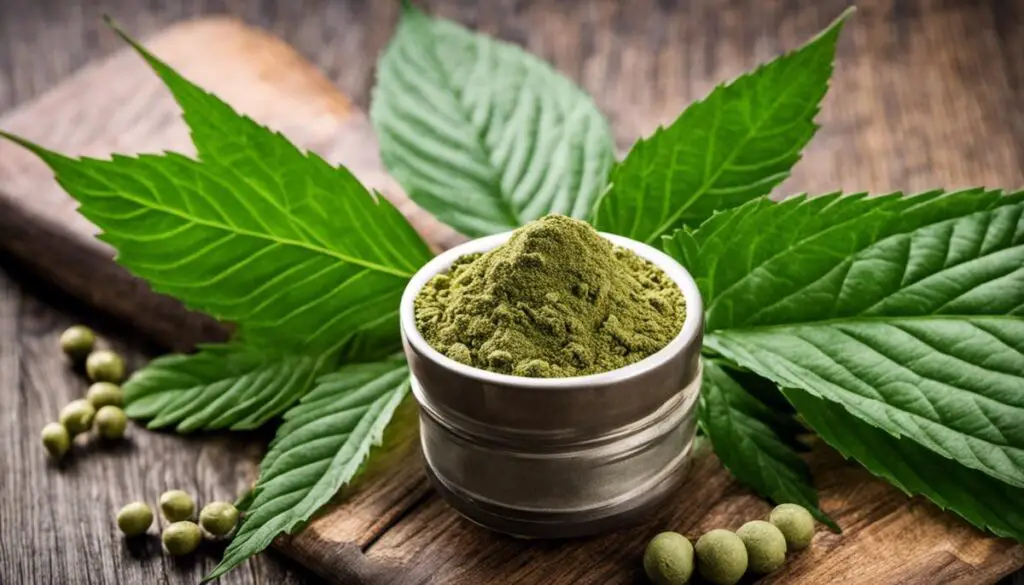
Despite its widespread use, rigorous scientific research on kratom is relatively limited. However, preliminary studies have suggested potential therapeutic benefits.
A comprehensive review published in 2017 in the Journal of the American Osteopathic Association indicated that kratom might have analgesic, anti-inflammatory, and muscle relaxant effects.
SHOULD YOU USE KRATOM EVERYDAY
When it comes to daily kratom use, the general consensus among medical professionals is one of caution. As with pretty much anything (drugs, alcohol, sex, exercise, food, social media), frequent use can lead to tolerance, dependence, and withdrawal symptoms. The U.S. Food and Drug Administration (FDA) has not approved kratom for medicinal use due to concerns about safety, efficacy, and quality.
If you choose to use kratom daily, it’s crucial to be aware of potential risks. Frequent use can lead to a variety of side effects, from mild symptoms like dry mouth and appetite loss to more severe issues like constipation, insomnia, and severe weight loss. Moreover, frequent use can lead to a physical dependence on the substance, leading to withdrawal symptoms when usage ceases.
The regulation of kratom products remains inconsistent, and product purity and quality can vary significantly. Therefore, it’s essential to source kratom from reputable, transparent vendors.
CLICK HERE FOR GREAT QUALITY KRATOM FROM A REPUTABLE AND TRANSPARENT VENDOR
In summary, while the potential benefits of kratom are vast, it may not be advisable to use it every day. Balance and moderation are the key factors when it comes to use of anything in this world, including kratom. It is always advisable to consult with a healthcare professional before including any new substance into your daily regimen for health-related purposes.
WHAT ARE THE DRAWBACKS TO REGULAR KRATOM USE
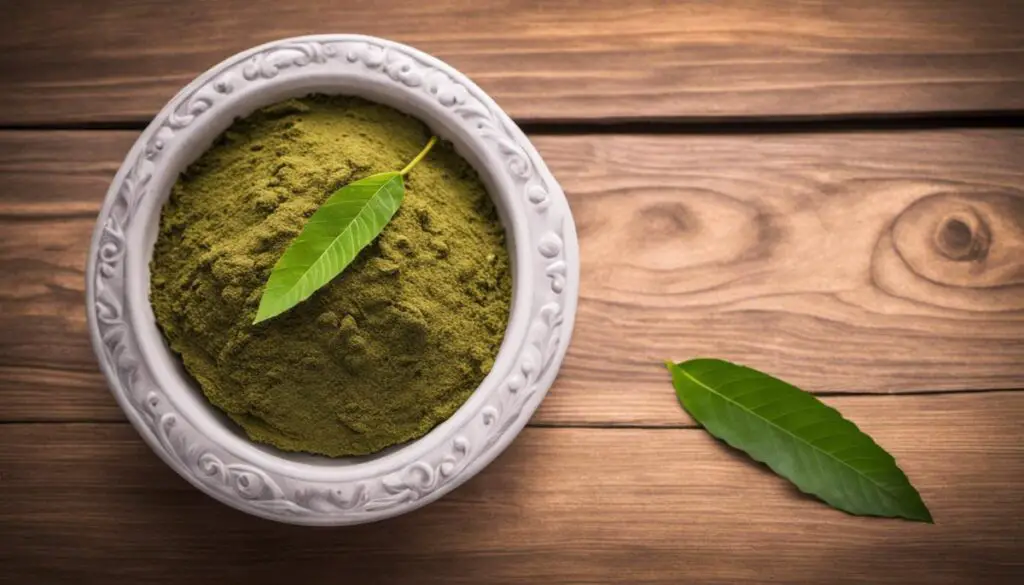
Kratom, a tropical tree indigenous to Southeast Asia, has been used in traditional herbal medicine for centuries due to its unique stimulant and sedative properties. It has been garnering attention in the United States in recent years, being sought out as a natural resolution for various health problems ranging from pain management, stress relief, to aiding in opiate withdrawal.
Nonetheless, along with its possible benefits, kratom use can lead to a series of side effects and pose some health risks. Individuals may experience physical symptoms such as nausea, dry mouth, itching, sweat bouts, constipation, and decreased appetite amongst others. Additionally, due to its psychoactive attributes, kratom use might trigger certain psychological symptoms such as hallucinations, heightened anxiety, and increased aggression.
Dependence and Withdrawal Symptoms
One of the major concerns of using kratom is the potential for dependence and addiction. Long-term use of kratom can lead to physical dependence, resulting in withdrawal symptoms if use is discontinued abruptly. These symptoms can include muscle aches, insomnia, irritability, hostility, aggression, emotional changes, and runny nose.
Health Complications
Kratom use can also result in serious health complications. Cases of liver damage, seizures, and even death have been reported among extreme cases of kratom use. Importantly, using kratom with other substances, such as alcohol, prescription opioids, or benzodiazepines, can increase the risk of dangerous side effects or fatal overdoses.
WHAT ARE SOME TIPS FOR DAILY KRATOM USE
As for the question of whether it’s safe to use kratom every day, opinions are split. Some proponents of the herb state that daily usage can aid in managing chronic pain and easing opiate withdrawal symptoms. However, health professionals often warn against daily consumption due to the risk of developing physical dependence or experiencing side effects such as insomnia, aggression, and hallucinations.
Accordingly, aspiring users are advised to keep abreast of ongoing research about this plant and ensure they comply with the regulations governing its use in their respective jurisdictions.
Tolerance Development
Just like other substances that affect the human body’s opioid receptors, regular use of kratom can trigger the development of tolerance. This occurs when your body becomes accustomed to the effects of kratom in its system. Consequently, you may need to ingest larger amounts of it to experience the same effects you once felt with smaller quantities.
This increased dosage can lead to an accelerated build-up of kratom in your system, which may intensify some of its side effects such as nausea, itching, sweating, dry mouth, constipation, increased urination, loss of appetite, psychosis, and seizures. That said, it is advised that one should take regular breaks and abstain from kratom in order to avoid building up tolerance.

Please Use Responsibly
Responsible use of kratom includes infrequent use, low to moderate doses, and avoiding mixing it with other substances. Rather than consuming it daily, it is suggested to take kratom sparingly to prevent development of tolerance and reliance. It would be wise to limit intake to once or twice a week at maximum.
Many kratom enthusiasts follow a principle known as “less is more”, implying that low to moderate doses can deliver the most beneficial effects. This principle discourages escalating doses and thus helps prevent tolerance and dependence. Furthermore, mixing kratom with alcohol, opioids, or other drugs is strongly discouraged due to the risk of adverse reactions, overdose, and increased side effects.
Lastly, every individual’s body responds differently to substances, hence it is crucial to pay attention to how your body reacts to kratom and adjust usage accordingly.
Conclusion
Although kratom is often hailed for its potential to relieve pain, lift mood, and boost energy, it is generally advised against daily use. This recommendation is primarily due to the associated risk of developing tolerance and dependence on the substance. Utilizing kratom responsibly, and seeking advice from healthcare providers before incorporating it into your regimen is key.
-The Educated Felon
You may also want to check out my other posts…
DOES KRATOM VIOLATE YOUR PROBATION?

